Milk is a familiar beverage for many children and adults alike. Besides being consumed directly, fresh milk also has other uses, such as in baking and skincare. A common question that often arises is: How many calories are in a glass of fresh milk? Does drinking milk make you fat? How should it be consumed for optimal health benefits? Let’s explore these queries in the following article.
1 Nutritional Composition of Fresh Milk
Nutritional Value of Fresh Milk
The nutritional content of fresh milk can vary depending on certain factors and conditions. On average, 100ml of fresh milk provides the following nutrients to the body:
-
Energy: 73.2 kcal
-
Protein: 3.2g
-
Fat: 2.9g
-
Carbohydrates: 8.2g
-
Vitamin A: 113 IU
-
Vitamin D: 15 IU
-
Vitamin B1: 26 µg
-
Vitamin B2: 139 µg
-
Calcium: 100 mg
-
Phosphorus: 7.7mg
-
Magnesium: 0.31 mg
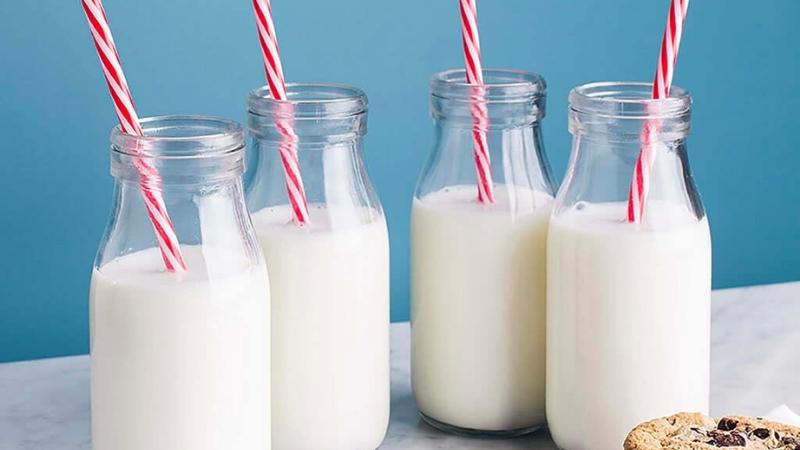 Nutritional Value of Fresh Milk
Nutritional Value of Fresh Milk
Health Benefits of Fresh Milk
Fresh milk is not only a familiar beverage but also a versatile ingredient in many delicious dishes, and it can be used for skincare purposes as well. Here are some of the health benefits associated with consuming fresh milk:
-
Stronger Bones and Teeth: The rich content of calcium and vitamin D3 in milk helps promote bone and dental health.
-
Energy Boost: Fresh milk is an excellent source of energy, protein, and fat. Drinking a glass of milk during the afternoon slump or when you’re feeling stressed can provide an instant energy boost.
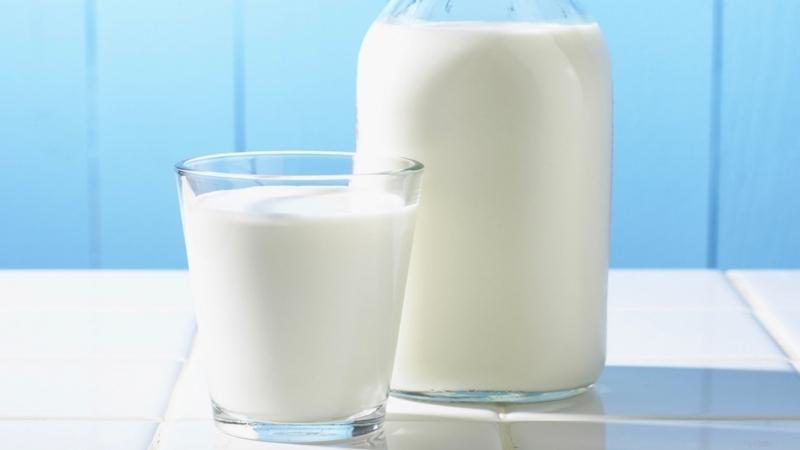 Health Benefits of Fresh Milk
Health Benefits of Fresh Milk
-
Improved Immunity: The abundance of vitamins A and D, along with minerals like magnesium and potassium in milk, help strengthen the immune system and maintain healthy metabolic functions.
-
Skincare: The presence of alpha-hydroxy acids in fresh milk can help rejuvenate the skin. You can also use milk for bathing or as a facial mask for enhanced skincare.
For further reference:
2 How Many Calories Are in 100ml of Fresh Milk?
Different types of milk vary in their calorie content. On average, 100ml of the following types of fresh milk will contain the specified amount of calories:
| Milk Type | Calorie Count |
|---|---|
| Whole Cow’s Milk | 150 |
| Reduced-Fat Cow’s Milk (1%) | 110 |
| Skimmed Cow’s Milk | 80 |
| Unsweetened Almond Milk | 40 |
| Unsweetened Soy Milk | 80 |
| Unsweetened Rice Milk | 120 |
| Unsweetened Coconut Milk | 50 |
| Sweetened Fresh Milk | 73 |
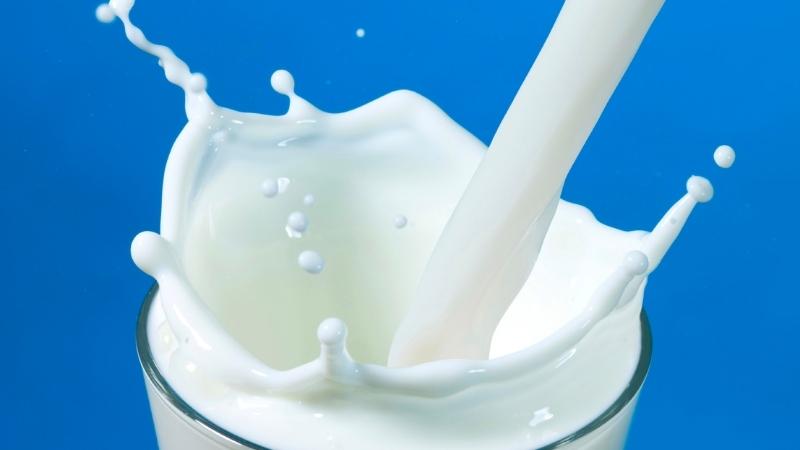 Calorie Content in 100ml of Fresh Milk
Calorie Content in 100ml of Fresh Milk
3 Does Drinking Fresh Milk Cause Weight Gain?
Does Sweetened Fresh Milk Cause Weight Gain?
Whether or not drinking sweetened fresh milk leads to weight gain depends on the amount of milk consumed and the total calorie intake per day.
On average, our bodies require approximately 2000 – 2500 calories per day to function properly. As long as your daily calorie intake doesn’t exceed this range, drinking milk will not lead to weight gain.

However, if you’re aiming for rapid weight loss, it’s advisable to limit your milk intake to around 100ml per day. On the other hand, if you use fresh milk as your primary beverage throughout the day, there’s a high risk of weight gain.
For additional insights:
Does Unsweetened Fresh Milk Cause Weight Gain?
Unsweetened fresh milk comes in various types, including skimmed, reduced-fat, and whole milk. Skimmed and reduced-fat milk options typically have lower calorie counts and are less likely to impact your weight if you’re on a diet.
On the other hand, whole milk contains higher amounts of fat and calories, which can contribute to weight gain if consumed in large quantities daily.
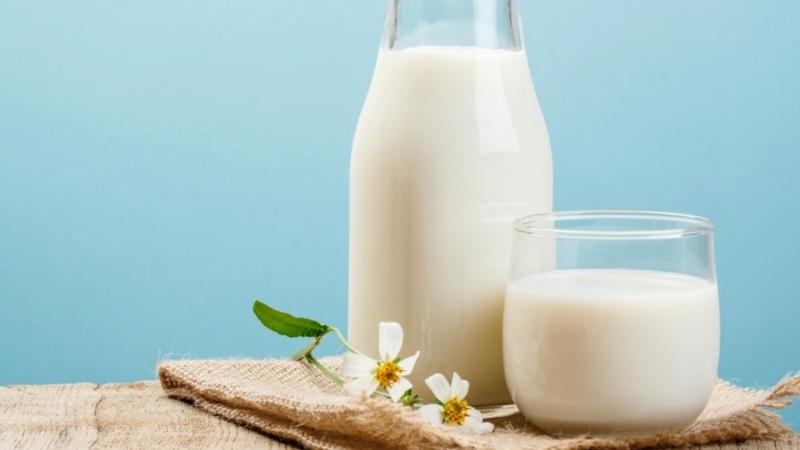 Does Unsweetened Fresh Milk Cause Weight Gain?
Does Unsweetened Fresh Milk Cause Weight Gain?
Additionally, whether or not drinking unsweetened fresh milk leads to weight gain also depends on your overall calorie intake and the amount of milk consumed. Excessive daily calorie intake, beyond what your body requires, can result in the accumulation of body fat and subsequent weight gain.
Further reading:
4 Tips for Drinking Fresh Milk for Optimal Health Benefits
-
While fresh milk offers numerous health benefits, the recommended intake varies depending on the individual. For adults, 200ml per serving is suggested, while children should consume around 150ml at a time. It’s also beneficial to divide the total intake into smaller portions and consume them throughout the day.
-
Avoid drinking milk on an empty stomach, as it may irritate the digestive system. Consuming milk with a meal helps improve calcium absorption. Additionally, try to drink milk at least 30 minutes before bedtime to prevent feelings of fullness and discomfort while sleeping.
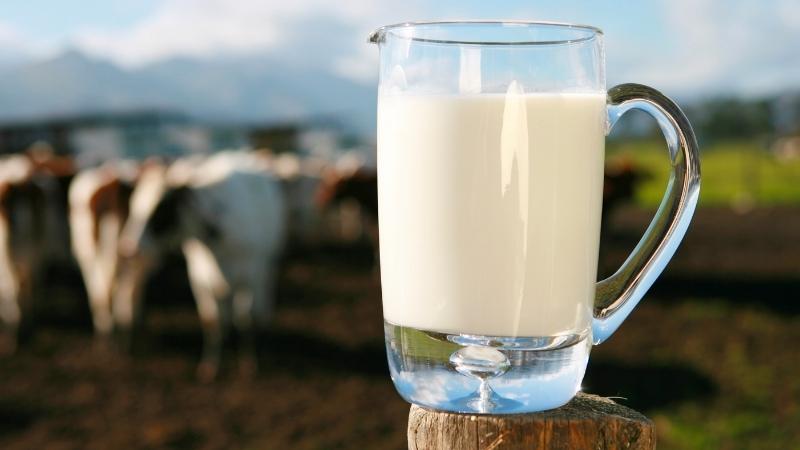 Tips for Drinking Fresh Milk for Optimal Health Benefits
Tips for Drinking Fresh Milk for Optimal Health Benefits
-
Do not consume milk together with medications, as it may reduce their effectiveness and potentially cause adverse side effects.
-
Individuals with certain conditions, such as milk allergies, kidney stones, anemia, gastroesophageal reflux, acute nephritis, diarrhea, and other digestive issues, should refrain from drinking fresh milk.
This article has provided insights into the calorie content of fresh milk, addressed concerns about potential weight gain, and offered guidance on how to consume milk for optimal health benefits. Hopefully, you’ve found this information useful!
Source: International Medical Clinic
































